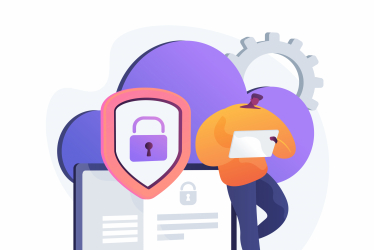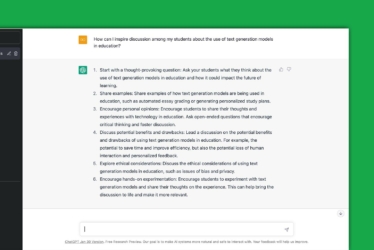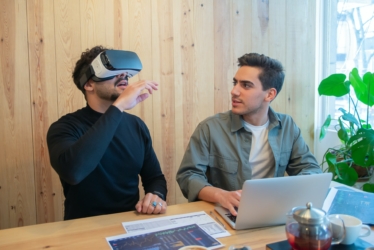Insights
Put to the Test: Insights From our Digital Education Seminar
In the first of two articles focusing on digitalising education at Leiden University, we outline four major insights learned from supporting the transition in unusual times.
This week, Leiden University hits a milestone; one year since the University moved education online in response to Covid-19. As a result, 2020 was a year of an extraordinary digital transformation at Leiden and a year that put digital education to the test.
One year on and it’s time to re-cap, gather the lessons learned and capture insights from the collective experience of taking Leiden University online. During the January 2021 Digital Education (DigEd) Seminar, organised by the Centre for Innovation, we identified four insights and four challenges regarding remote and blended education at Leiden University.
This article looks at the insights while a parallel report deals with the challenges.
Insight 1: 2020 overcame many technological barriers
To continue education in 2020, the University had to swiftly move online. This catalysed the implementation of digital infrastructure and a rapid increase in literacy round digital teaching tools.
In a short documentary that aired during the DigEd seminar, support staff, students and teachers recall their experience of rolling out video meeting technology like Microsoft Teams overnight; a process that usually takes months. Now, a year later, teachers have been equipped with a wide range of blended teaching tools.
Not only do teachers now have increased access to technology, but they also have more understanding of blended education tools and methods. Both comfort and literacy have grown. Teachers use technology to enhance their workspaces, record material at home and use a myriad of online tools to diversify their teaching.
Under this outcome, teachers are increasingly integrating streaming equipment and tech that was previously under-used and commonly ignored. Teachers are taking more initiative than before the pandemic to develop blended learning.
On the other hand, new technology introduces new challenges. A tension emerged between the demand for digital tools and the privacy, security and inclusivity of technology. See our parallel article on the challenges that arose from digital education in 2020.
Insight 2: Staff confidence is a must
There will always be a diverse reception to new technology. From early-adopters to those more resistant to change, the speed at which a technology is incorporated into ways of working varies drastically. Normally, organisations can accommodate both rapid adopters and those slower on the uptake. However, when responding to a pandemic, this variance in adoption must be constrained toward rapid integration of new tech.
In 2020, adoption of new digital education technologies at Leiden University had to be rapid and non-voluntary. This entailed a shift toward a rollout model looking somewhat like Prof. Gilly Salmon’s Five Stage Model, which necessitates user confidence with education technology before it can be used. Teacher and student confidence and comfort with online learning tools is a prerequisite for effective virtual education. Once familiarity is achieved, teaching and knowledge-transfer can be implemented effectively.
Soon after physical education halted in March, teachers took initiative to master online tools. They also helped students become comfortable and confident with the new software. At this time, the Centre for Innovation hosted support webinars for teachers. We observed then that the immediate knowledge gap was practical expertise in using the tools. As teachers’ adoption of the tech advanced, by Summer, the University entered a new phase of remote teaching which focused on the social aspects of online learning. We focused our efforts on improving the social interactions and encounters facing teachers and students in their new learning environment. This resulted in the launch of the teaching support website.
Now, after a year of online teaching and various forms of lockdown, we see that a majority of teachers are digging deeper into improving online education experiences. From the exit survey of the DigEd Seminar, we found a growing interest in subjects related to digital pedagogy, as well as a desire to invest more time into improving blended learning methodologies.
Insight 3: We’re still moving from contingency to blended education
In the first phase of the lockdown, we referred to the switch to online education as ‘Emergency Remote Teaching’. This was a deliberate choice to highlight how contingency education is entirely different to properly implemented online and blended forms of teaching.
The most important difference is the lack of time for planning and production: with only one week’s notice, teachers were propelled into the digital space with no time to redesign their courses. As a result, classes were often taught exactly as they would have been on campus, with little consideration for how the digital format impacted the effectiveness of such a model. Those teachers or institutes who were already experienced with some form of digital teaching, or even had some videos ready, had some advantage in making their choices, but everybody struggled with a steep learning curve. It is a credit to both teachers and students at Leiden University that standards did not drop significantly in this first phase, as the Semester Survey revealed.
From exploring integration of chat features to introducing more interaction with peer feedback, we now see a growing agility from teachers on how to approach the opportunities of online and blended learning. This also includes the challenge of creating a shared learning experience for the so-called hybrid teaching mode where students simultaneously join classes physically and through an online platform..
Asynchronous teaching (e.g. watching a video lecture before coming to class) is a form of blended teaching that has become much more prevalent. At the same time, it is still a challenge for most teachers to keep in touch with students and maintain engagement. While blended learning has seen many successes this last year, there is still some way to go.
Insight 4: Innovation Investments and Multidisciplinary Collaboration
One of the primary challenges to investing in innovation is the lack of clear outcomes or long-term returns at the outset of an innovation project. The crisis-led transition to online teaching was a unique case study in how important it is to invest in testing new ideas, technologies and ways of working without fully understanding how they will impact education in the long run. Teachers and support staff able to experiment with online learning in the past were one step ahead, and took the lead in helping their colleagues get up to speed.
As we shift towards a new balance between research and education, it is urgent to emphasize that successful digital education results from multidisciplinary collaboration. Silos in expertise are barriers to knowledge sharing and transfer. Digital education shows that education is a task for more than one set of shoulders to carry. Attendees to the DigEd Seminar expressed their appreciation for being part of a community where everybody is in it together with the same mission.
Collaboration with (student) moderators.
The move toward digital education raised the requirement for moderating resources. This was initially answered by the implementation of the Moderation Support Team. However, emerging best practices demonstrate the effectiveness of teachers to collaborate in multidisciplinary teams, alternating between teaching, moderating and other work (eg research). It may seem like the contrary, but this reduces work pressure and improves ideation and solution generation.
A final insight from the DigEd Seminar is that we must embrace that new tools and technologies will continue to improve. It is much more productive to think about digital education tools as evolving, with continuous lifecycle improvement. It is an iterative process, rather than delivered as ready out of the box. Taking it one step at a time also provides more room for innovation.
Get in touch
Did this article spark any lightbulb moments for you? If you have any feedback, ideas, or would like to get in touch for any other reason, send us an email at c4i@sea.leidenuniv.nl.


Read More




